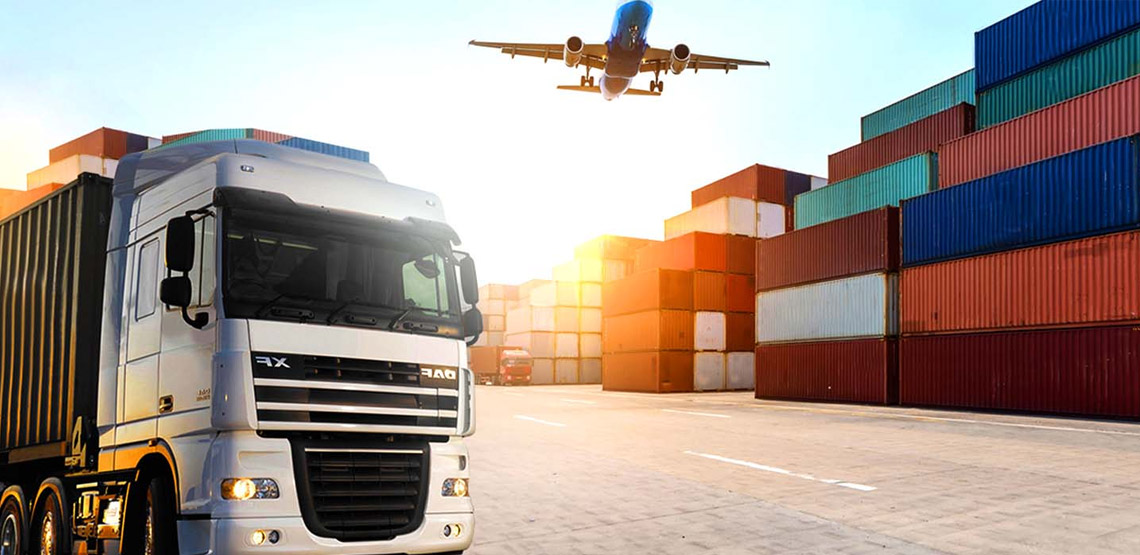
Sustainability Initiatives Driving Change in Indian Logistics Industry
Introduction
The Indian logistics industry, a crucial component of the nation's economy, is undergoing a significant transformation fueled by sustainability initiatives. With a growing awareness of environmental issues and the need for sustainable development, Logistics solution company in india are embracing innovative strategies to minimize their environmental footprint while enhancing operational efficiency. This article explores the sustainability initiatives driving change in the Indian logistics industry and their impact on the sector's future.
Rising Environmental Concerns
In recent years, India has witnessed a surge in environmental awareness and concerns regarding climate change, pollution, and resource depletion. As a result, businesses across various sectors, including logistics, are under pressure to adopt sustainable practices to mitigate their impact on the environment. The logistics industry, known for its significant carbon emissions, is increasingly being scrutinized for its role in contributing to environmental degradation.
Adoption of Green Technologies
To address these concerns, logistics companies in India are actively adopting green technologies and alternative fuels to reduce their carbon footprint. Electric vehicles (EVs) and hybrid vehicles are being integrated into fleets to minimize reliance on fossil fuels and lower emissions. Additionally, companies are investing in renewable energy sources such as solar power to power their warehouses and distribution centers, further reducing their carbon footprint.
Efficiency Through Route Optimization
Another key sustainability initiative driving change in the Indian logistics industry is route optimization. By leveraging advanced technologies such as GPS tracking, data analytics, and artificial intelligence, logistics companies are optimizing their delivery routes to minimize fuel consumption, vehicle idle time, and overall transportation costs. This not only reduces emissions but also improves operational efficiency, leading to faster deliveries and enhanced customer satisfaction.
Multimodal Transportation
Multimodal transportation, which involves the seamless integration of different modes of transport such as road, rail, sea, and air, is gaining traction in the Indian logistics industry. By combining multiple modes of transport, companies can optimize logistics networks, reduce dependency on any single mode of transport, and lower emissions. Additionally, initiatives such as coastal shipping and inland waterways transportation are being promoted to further reduce the environmental impact of freight transportation.
Focus on Sustainable Packaging
In addition to transportation-related initiatives, logistics companies in India are also focusing on sustainable packaging solutions to minimize waste and environmental impact. Eco-friendly packaging materials such as biodegradable plastics, recycled paper, and plant-based materials are being increasingly adopted to replace traditional packaging materials like plastic and styrofoam. Furthermore, companies are exploring innovative packaging designs that optimize space utilization and reduce the need for excess packaging material.
Government Support and Regulatory Framework
The Indian government has been actively promoting sustainability initiatives in the logistics sector through policy support and regulatory frameworks. Initiatives such as the Green Freight Corridor project, which aims to create dedicated freight lanes with reduced emissions, and the FAME India scheme, which incentivizes the adoption of electric and hybrid vehicles, are examples of government-led efforts to promote sustainability in logistics.
Industry Collaboration and Partnerships
Collaboration and partnerships between logistics companies, government agencies, and other stakeholders are also driving sustainability initiatives in the Indian logistics industry. Industry associations and forums are facilitating knowledge sharing, best practice dissemination, and collaborative projects aimed at promoting sustainability and driving innovation in the sector. Additionally, partnerships between logistics companies and technology providers are enabling the adoption of advanced technologies and solutions for sustainable logistics operations.
Challenges and Opportunities
Despite the progress made in implementing sustainability initiatives, the Indian logistics industry still faces several challenges on the path to sustainability. Limited infrastructure, high capital costs of green technologies, and a lack of awareness and skilled manpower are some of the key challenges hindering the widespread adoption of sustainable practices. However, these challenges also present opportunities for innovation, investment, and collaboration to overcome barriers and drive positive change in the industry.
Conclusion
In conclusion, sustainability initiatives are driving significant change in the Indian logistics industry, with companies increasingly adopting green technologies, optimizing routes, embracing multimodal transportation, and focusing on sustainable packaging solutions. Government support, industry collaboration, and technological advancements are further catalyzing this transformation. While challenges remain, the momentum towards sustainability is unmistakable, and the Indian logistics industry is poised to emerge as a global leader in sustainable logistics practices.
As stakeholders across the industry continue to prioritize sustainability, the future of Logistics solution company in india looks promising, with a focus on balancing economic growth with environmental conservation and social responsibility. By embracing sustainability as a core principle, the Indian logistics industry is not only mitigating its impact on the environment but also driving positive social and economic outcomes for the nation.